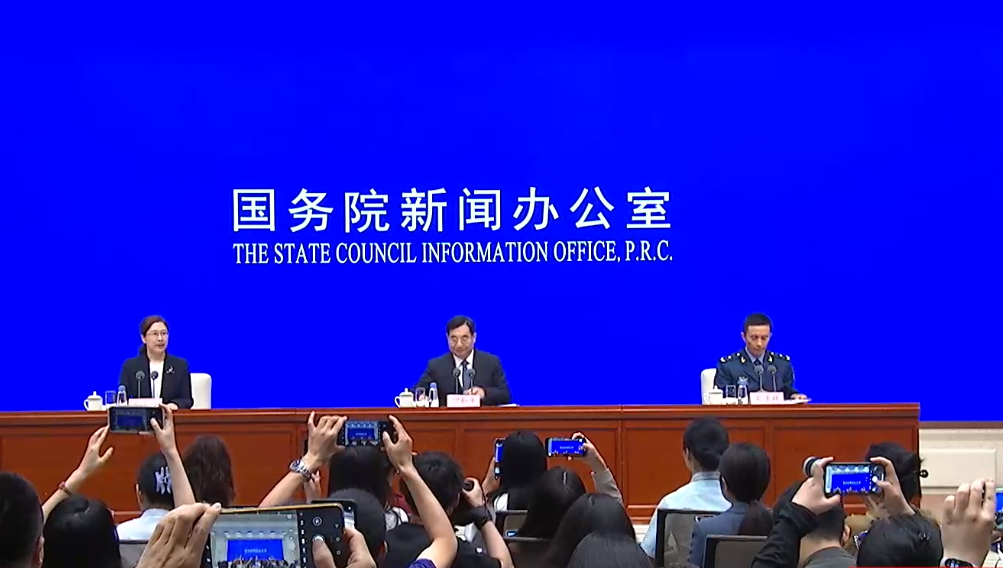Beijing Radio and Television Station:
China's militia forces played an important role in the Chinese People's War of Resistance Against Japanese Aggression, and in several recent military parades, female militia contingents from various sectors of the capital have been organized to participate. What new arrangements or features are planned for this aspect in this year's parade? Thank you.
Wu Zeke:
I'll answer this. Thank you. As we all know, the militia is a component of China's armed forces and serves as an auxiliary and reserve force for the People's Liberation Army. During the Chinese People's War of Resistance Against Japanese Aggression, the militia forces not only engaged with the Japanese troops behind enemy lines, launching guerrilla warfare on an unprecedented scale, but also provided manpower, material support and logistical backing for the Eighth Route Army, the New Fourth Army and other main forces.They effectively coordinated with main forces to strike the Japanese invaders, making an indelible contribution to the victory of the war and writing an enduring chapter in the history of the people's war. Since the 18th CPC National Congress, China's national defense mobilization and reserve forces have been transformed, upgraded and developed at an accelerated pace. A modern militia system has been established, integrating peacetime service, emergency response and wartime combat capabilities. This year, we have arranged for a militia formation to participate in the parade, marking the first time the militia has taken part in a parade themed around commemorating the Chinese People's War of Resistance Against Japanese Aggression. At present, our militia formation has arrived in Beijing and is conducting training with full political enthusiasm, high morale and unwavering fighting resolve. Thank you.
Shou Xiaoli:
Thank you to all our speakers and to all the journalists for your participation. This concludes today's press conference. Goodbye, everyone.
Translated and edited by Wang Yiming, Wang Xingguang, Liu Caiyi, Xu Kailin, Liao Jiaxin, Liu Jianing, Yang Xi, Zhang Tingting, Mi Xingang, Yang Chuanli, Wang Qian, Wang Yanfang, Liu Sitong, Zhang Rui, Huang Shan, Ma Yujia, Zhang Junmian, Li Huiru, David Ball, and Jay Birbeck. In case of any discrepancy between the English and Chinese texts, the Chinese version is deemed to prevail.


 Share:
Share: 




 京公網(wǎng)安備 11010802027341號
京公網(wǎng)安備 11010802027341號